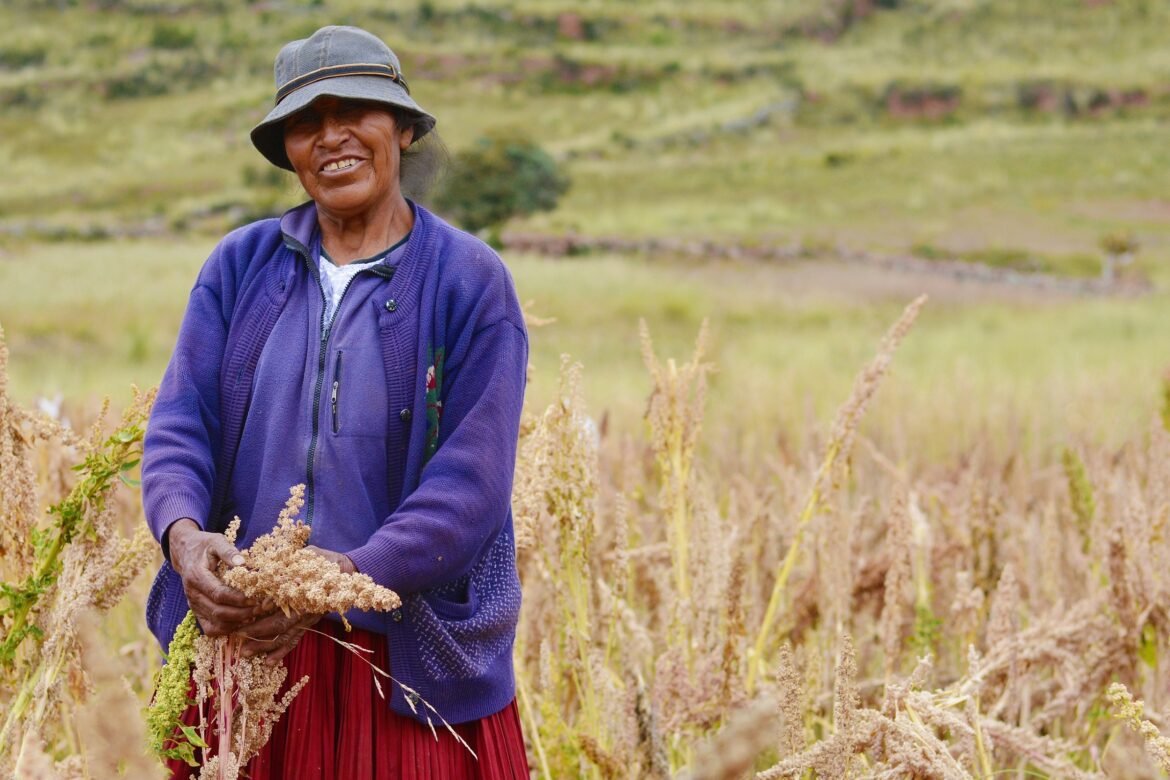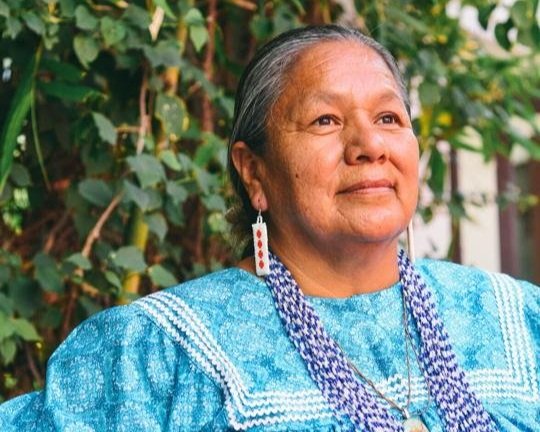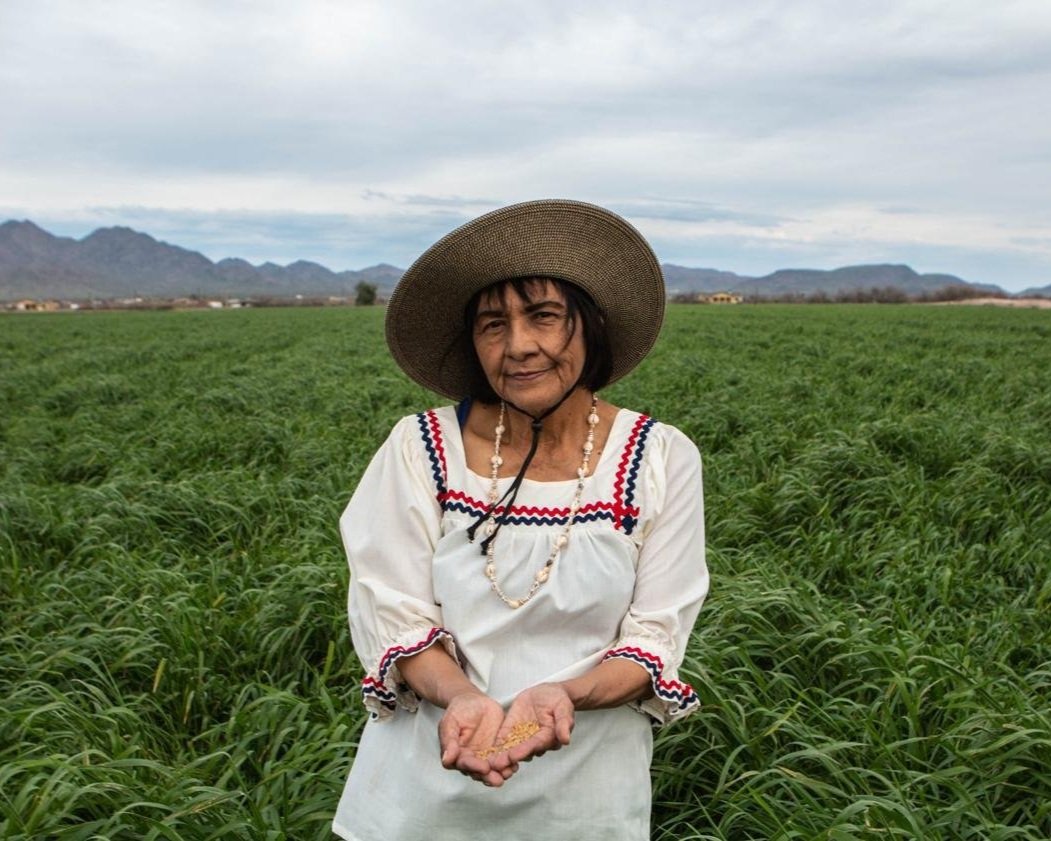Dec 3, 2021
23 Indigenous American Food Activists, Educators, And Other Figures To Know

Editor’s Note: It’s great to see these incredible agricultural leaders promote indigenous food and agricultural practices to help us strengthen the modern-day food system. Such work helps us fight the lack of diversity in the agricultural industry and further sustainability in agricultural practices. The Milpa and Mayan forest gardens, for instance, are a traditional agro-forestry system that allows for farmers to both meet the food needs of humans and regenerate the environment in which their food is produced.
CONTENT SOURCED FROM THE HUNTER COLLEGE FOOD POLICY CENTER
Written by: Leah Butz
November is National Native American Heritage Month, and in order to acknowledge and celebrate Native cultures we have compiled a list of indigenous American food activists, including chefs, writers, farmers, and more. The traditional foodways of Native American tribes have been largely suppressed since the arrival of Europeans in the Americas, but the following people have worked hard to revitalize and promote indigenous food and agricultural practices. This list is by no means exhaustive: please email info@nycfoodpolicy.org if you know of any other figures who should be included.

Twila Cassadore
Tribe(s) and Location: Cassadore is a member of the San Carlos Apache Tribe in southeastern Arizona.
Category: Educator, activist, forager
Background: Twila Cassadore has been a food educator for more than 25 years and her work has included efforts to incorporate traditional foods (such as acorn and desert woodrat) back into the Western Apache diet. She launched the Western Apache Diet Project in order to combat the epidemic of diet-related disease among native peoples. She learns about indigenous foodways through interviews with elders and exploration of the wildlands of southeastern Arizona. Cassadore is a member of I-Collective.
Social Media: @twila_cassadore_ on Instagram

M. Karlos Baca
Tribe(s) and Location: Baca is Tewa, Diné (or Navajo), and Nuche, and hails from the Southern Ute Nation in southwestern Colorado.
Category: Chef, activist
Background: M. Karlos Baca is a chef and food activist who promotes pre-colonization indigenous foodways and tribal food sovereignty. In 2011 he founded Taste of Native Cuisine, a collective of indigenous chefs that is connected to the Southern Ute Cultural Center & Museum. And he is also the founder of 4th World Farm, which cultivates pre-colonization foods and utilizes traditional indigenous agricultural practices. Finally, he is a member of I-Collective, a group of indigenous chefs working to “promote [the indigenous] community’s resilience and innovations in gastronomy, agriculture, the arts, and society at large.”
Social Media: @tasteofn8vcuisine on Instagram

Ramona Button
Tribe(s) and Location: Button is Akimel O’odham (also known as Pima), and her farm is located in Sacaton, Arizona.
Category: Farmer
Background: Ramona Button grew up in the Gila River Indian Community in Arizona, speaking the native O’odham language and eating traditional foods such as the saguaro fruit, mesquite beans, and prickly pear. Since 1974, she and her husband, Terry Button, have owned and operated Ramona Farms where they grow a variety of native crops, including bavi, or tepary beans, an heirloom variety that has been grown in the Sonoran desert for hundreds of years. Button has been working to restore indigenous foodways, including revitalizing the use of tepary beans, for almost fifty years.

Neftalí Durán
Tribe(s) and Location: Durán was born in Oaxaca, Mexico, of the Ñuu Savi indigenous people, but currently lives in Holyoke, Massachusetts.
Category: Chef, activist, educator
Background: Neftalí Durán emigrated from Oaxaca when he was 18 years old, initially working as a line cook at a restaurant in Los Angeles before opening his own restaurant in Massachusetts. He is a founding member of I-Collective and works with various groups that promote food sovereignty and anti-racism in the food system. In Massachusetts, he founded the Holyoke Food & Equity Collective, which works to promote health, racial, and economic equity in the city of Holyoke. Furthermore, Durán teaches online classes to SNAP recipients about nutrition, budgeting, and cooking skills.
Social Media: @neftaliduran_ on Instagram

Lilian Hill
Tribe(s) and Location: Hill is Hopi and lives in Kykotsmovi, a village on the Hopi Indian Reservation in Arizona.
Category: Activist
Background: Lilian Hill is the Executive Director of the Native American Food Sovereignty Alliance and has been a strong promoter of indigenous self-determination and food sovereignty for more than 20 years. She has traveled to countries around the world advocating for the rights of indigenous populations beyond the United States. In 2004, she founded Hopi Tutskwa Permaculture, a community organization dedicated to revitalizing Hopi culture and traditions through engagement with the Hopi community and youth. She is also a recipient of a Castanea Fellowship, a program that supports people working to create a more racially just food system.
Social Media: @redfox_hill on Instagram

Kamuela Enos
Tribe(s) and Location: Enos is Native Hawaiian, from Wai’anae on the island of O’ahu.
Category: Farmer, educator, activist
Background: Kamuela Enos is the Director of the Office of Indigenous Innovation for the University of Hawaii, and his work focuses on incorporating traditional Hawaiian knowledge into modern agricultural innovation. He co-leads the Center for Indigenous Innovation and Health Equity, an initiative started in 2021 to improve health equity in Hawai’i. He previously worked at MA’O Organic Farms, a teaching garden that provides compensated agricultural internships to teenagers and young adults in Wai’anae.

